Flanders Rewards Its Creative Talent With Ultimas
Twelve Flemish artists and organisations across cultural disciplines have been rewarded with an Ultima for their outstanding contributions. In addition to the Ultimas, the BILL Award is also presented to young artistic talent.
The Ultimas, formerly known as the Flemish Culture Awards, are given out annually since 2003 by the Flemish Government. The name comes from the bronze sculpture by Antwerp artist Philip Aguirre y Otegui that winners receive, which is called “La Ultima Isla”, or The Last Island.
The laureates of the Ultimas receive a sum of 10,000 euros, the winner of the prize for General Cultural Merit receives 20,000 euros. These are this year’s laureates per category.
General Cultural Merit: Luc Tuymans
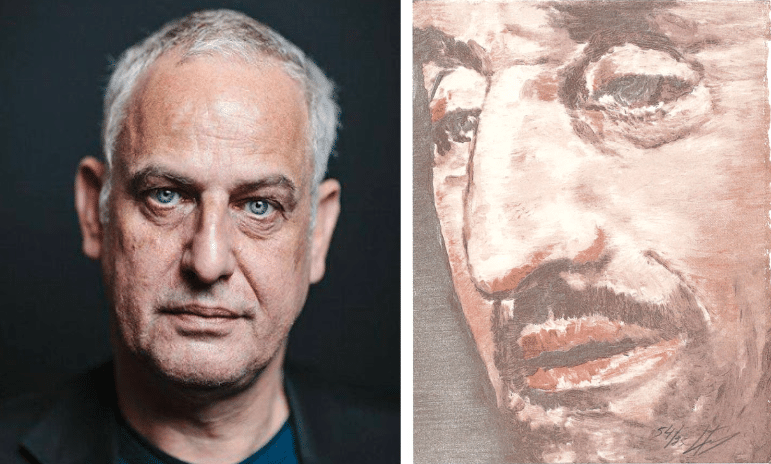
Luc Tuymans (b. 1958) is considered one of the most influential contemporary Belgian painters. At a time when painting was declared dead, he paints uneasy figurative canvases. With a cinematic gaze he depicts seemingly innocent, but emotionally charged subjects. Tuymans cherishes a fundamental distrust of the truth value of images. He calls his paintings ‘authentic forgeries’. In the summer of 2004, Tuymans was the first living Belgian artist to have an exhibition at the Tate Modern. Next to being an artist, Luc Tuymans is also more and more in demand as a curator of exhibitions.
What the jury says:
‘Luc Tuymans is one of the most influential artists of his generation. The merit of his critical works and new style can hardly be overestimated. In 2019, he is at the height of an impressive career. It is therefore the moment to honour him with an Ultima for General Cultural Merit.’
Read our profile on Luc Tuymans HERE
Visual Arts: Walter Swennen
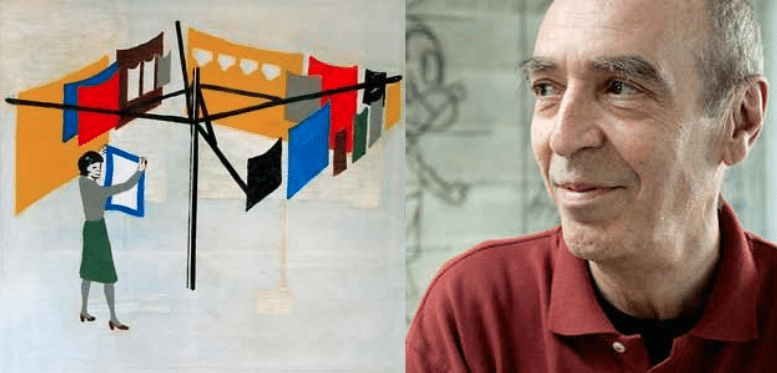
Like others of his generation, painter Walter Swennen (b. 1946) approaches and explores the medium by applying principles from other disciplines. After his early activity as a poet in the 1960s, Swennen decided in the early 80s to explore the lyrical possibilities of painting. His subsequently rapidly developed oeuvre was explicitly not characterised by the spontaneous or heroic imagery of his neo-expressionist contemporaries. Swennen is engaged in a steady exploration of the specific problems of painting, with a predilection for subtle forms of resistance, deviation and relativization: such as the marginal, the nonsensical, the understatement, the anticlimax and the tragicomic. If you look beyond the seemingly naive execution of his work, you will also discover sources of inspiration as diverse as comic books, world literature and philosophy, bilingual dictionaries, billboards and children’s drawings.
What the jury says:
‘The jury appreciates Walter Swennen’s radical and idiosyncratic trajectory and the fact that he has played and continues to play an inspiring role for younger generations of artists. By awarding this prize, the jury also wants to draw the wider public’s attention to a unique oeuvre that deserves even more international recognition.’
Performing Arts: Jozef Wouters/Menno Vandevelde/Decoratelier
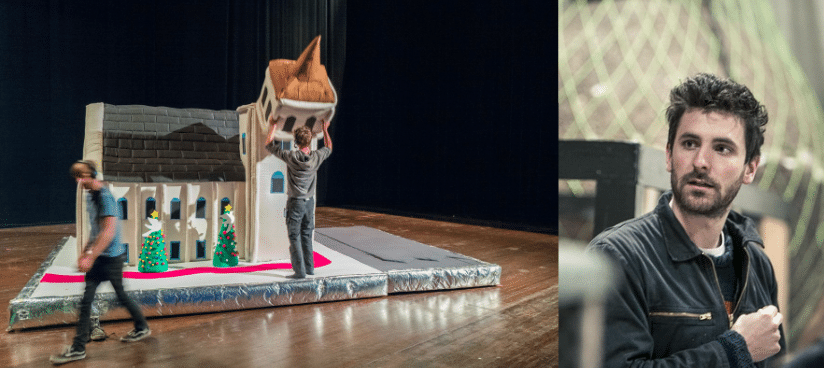
Decoratelier is an ongoing and constantly evolving project by scenographer and artist Jozef Wouters. Located in an old factory building in Molenbeek, Decoratelier has functioned since 2016 as an accessible artists’ workshop for theatre production, cross-disciplinary collaboration and social experimentation. The technical management of Decoratelier is in the hands of Menno Vandevelde. Jozef Wouters: ‘Decoratelier is a space that accommodates the various forms of collaboration and labour that are inherent in our work. Space is tested, conversations take place in wood, iron and cardboard. It is a permanent place within the constructional quest for constantly changing spaces in which art, thought and artisans meet.’
What the jury says:
‘The jury nominates Jozef Wouters / Menno Vandevelde / Decoratelier as laureate because of the commitment expressed in their work, and the genuine interest with which the makers from Decoratelier have set up the participatory project Underneath Which Rivers Flow with Globe Aroma over the past year: a project in which imagination and collaboration are central, which does not start from the possible problems of the participants, but from the ‘dreams of space’. A mix of performing arts and a social project with a unique artistic quality.’
Design: Paul Ibou
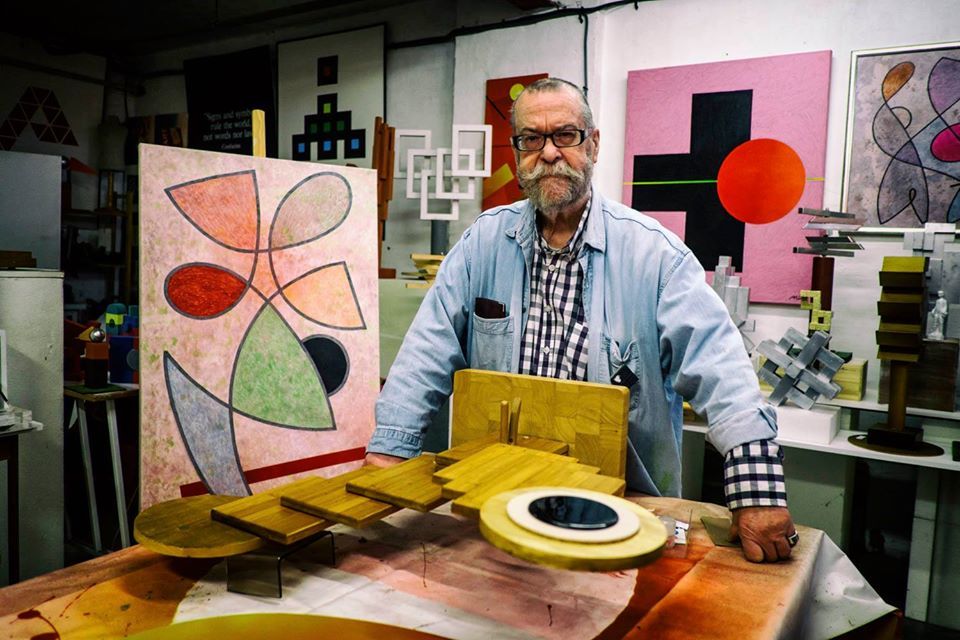
Paul Ibou, pseudonym of Paul Vermeersch (b. 1939), is a multi-artist, graphic designer, image designer and private publisher. He designed more than 400 logos and corporate identities of organizations and companies at home and abroad. He has also published numerous art and design books and organised international design events worldwide.
What the jury says:
Paul Ibou succeeded in demolishing the walls between various artistic disciplines. His work as a designer was enormously influential and multidisciplinary. His long and leading career, full of immediately recognizable graphic work, deserves an award.
Cultural Enterpreneurship: Allez Chantez!
Allez, Chantez! is a project, founded in Ghent, that brings people together to sing – just for the fun of it. The concept is simple: singing in a group once a month. Loudly, sometimes in different voices, but above all enthusiastically and with love for music. The vocal coaches guide the group through familiar and less familiar pop songs, cabaret and the golden oldies of our collective memory.
What the jury says:
The founders developed their seemingly simple concept bottom-up and in an accessible way. Their model is innovative in Flanders and brings together people from different walks of life. Through word-of-mouth advertising and the support of many ambassadors, Allez Chantez! has grown into a successful formula in recent years, creating a true singing community. Allez Chantez! works very contagiously and dares to innovate in a rather institutionalised field.
Literature: Rachida Lamrabet
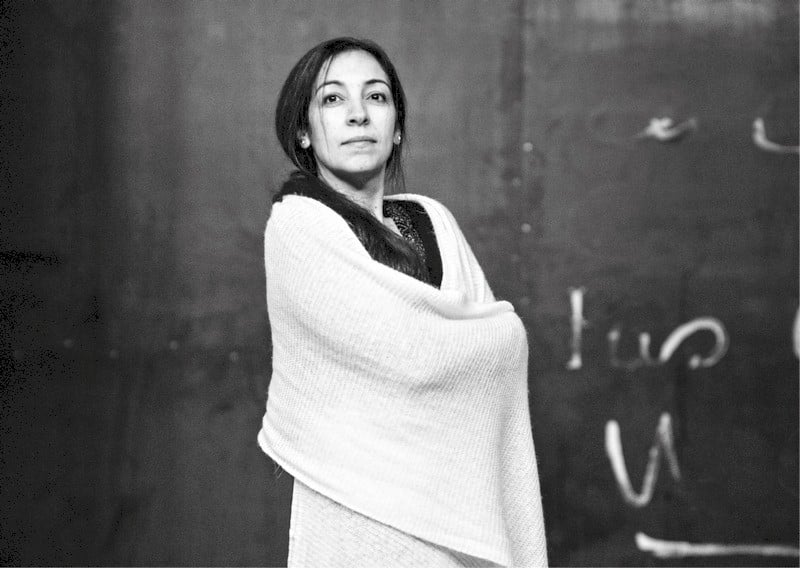
© Johan Jacobs
Moroccan-born Belgian writer and lawyer Rachida Lamrabet (b. 1970) dissects themes and hot button issues like migration and identity. She made her debut in 2017 with Vrouwland (Woman Country), which won the Debut Price of Boek.be. Een kind van god (A child of god) appeared in October 2008 and won her the BNG New Literature Price in the Netherlands. At the end of October 2011, Lamrabet published her second novel De man die niet begraven wilde worden (The man who wouldn’t be buried).
In 2017 she made the short film Project Deburkanisation, commissioned by the Goethe Institute Washington and KVS, the Brussels city theatre. The film caused a polemic, about which Lamrabet wrote the essay Zwijg allochtoon! (Shut up, immigrant!). Her most recent novel, Vertel het iemand (Tell someone), was published in 2018.
What the jury says:
‘Rachida Lamrabet is a unique voice in Flemish literature. She is a talented writer who tells stories that are not told by anyone else. With her versatile oeuvre she brings a new – and necessary – sound into our literature, and broadens the landscape of Flemish literature.’
Music: De Centrale
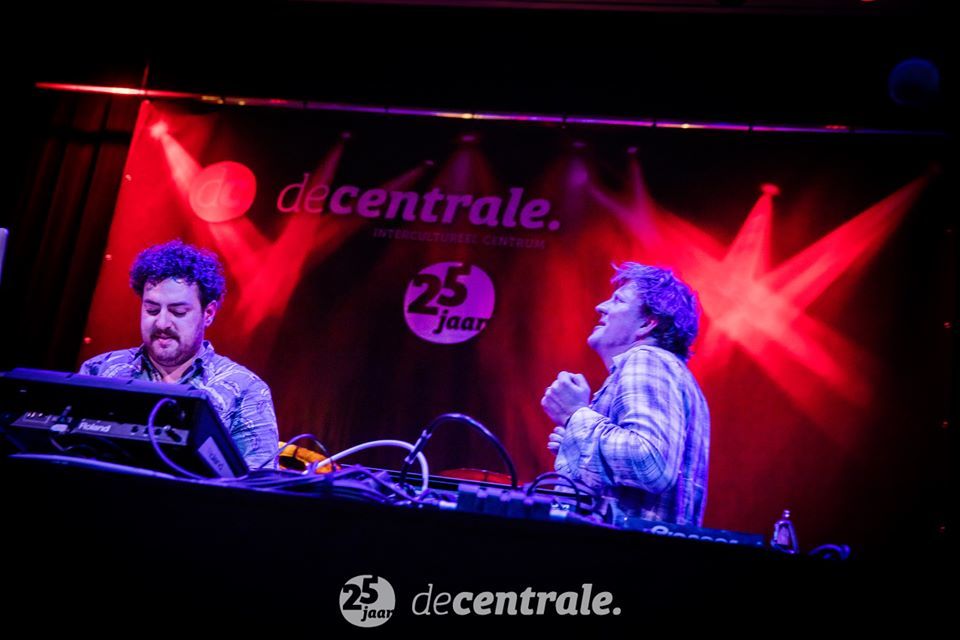
De Centrale is an intercultural centre for (performing) arts in Ghent that focuses on the creation and presentation of music that refers to the diversity of the urban population. The various multifunctional spaces are made available for performances, rehearsals, theatre and film shows, workshops, courses and meetings.
What the jury says:
‘In De Centrale, musicians from various backgrounds lift each other, the audience and society to a higher level, both artistically and humanely. It sets an example for the field of art and for society.’
Film: Emma De Swaef and Marc James Roels
Marc James Roels is a live-action director who has made award-winning short films. Emma De Swaef specializes in stop-motion and making dolls. Her favourite materials include wool, felt and textiles. Together they made the short film Oh Willy… in 2012, a stop-motion short film that won 80 international awards, including the Cartoon d’Or for best European short film, and a Cézar nomination. They live in Antwerp and Ce Magnifique Gâteau! is their most recent production.
What the jury says:
In an authentic style, Emma De Swaef and Marc James Roels create aesthetic jewels that make confrontational subjects accessible – such as Belgium’s colonial past in ‘Ce Magnifique Gâteau’. With their films, they put the Flemish animation sector on the map and set an example for many fellow animation filmmakers. Animation film (and certainly stop-motion animation for adults) is a niche that often remains underexposed. The jury is therefore pleased to put talented directors in this genre in the spotlight.
Read our review of ‘Ce Magnifique Gâteau’ HERE
Website Emma De Swaef and Marc James Roels
Immaterial Heritage: Flanders Architecture Institute

© Eline Ros
The Flemish Architecture Institute (VAi) is the sector institute for architectural culture in Flanders and Brussels. For many years it has been providing a high-quality service around the heritage of architecture and design. Since 2018, the Centre for Flemish Architectural Archives (CVAa) has changed its name and also houses the extensive collection of the former Architectural Archives of the Province of Antwerp (APA). The VAi now manages both the provision of services to a broad field of stakeholders and the operation of its own collection. This ‘takeover’ of CVAa and APA took place in such a special way that the VAi now unites the strengths of the collection management and service institute.
What the jury says:
‘The Flemish Architecture Institute combines exceptional public interaction and service provision with strong collection management, enabling it to cleverly highlight the architectural culture in Flanders, both at home and abroad.’
Website Flanders Architecture Institute
Local Cultural Policy: ‘De Grond der Dingen’ by Theater ARSENAAL/LAZARUS and Museum Hof van Busleyden

Two years ago, the theatre company ARSENAAL/LAZARUS and Museum Hof van Busleyden asked the people of Mechelen to share their ideas to help improve the city. As part of the De Grond der Dingen project, every inhabitant was given one square metre to make his/her city more liveable. The proposals were deliberated and negotiated, assessed and considered. But the negotiations are set to continue because the City of Mechelen promised the project 20,000 sqm of land in 2021 to execute a selection of these ideas. From 6 December 2019 until 15 March 2020, the first proposals are shown to the public in the temporary exhibition, The Neverending Park. This unique park consists of an artificial biotope under Museum Hof van Busleyden. It was designed by Decoratelier Jozef Wouters and Barry Ahmad Talib as an ever-changing backdrop to the quest for the substance, the ground of things. Like in every park, you can take a stroll through it, or hang around, meet other people, observe, learn and play.
What the jury says:
‘De Grond der Dingen’ initiates a large-scale project of urban negotiation that starts from the bottom up and connects all the people of Mechelen. It is an example of an inclusive local cultural policy.’
Amateur Arts: Mama’s Open Mic
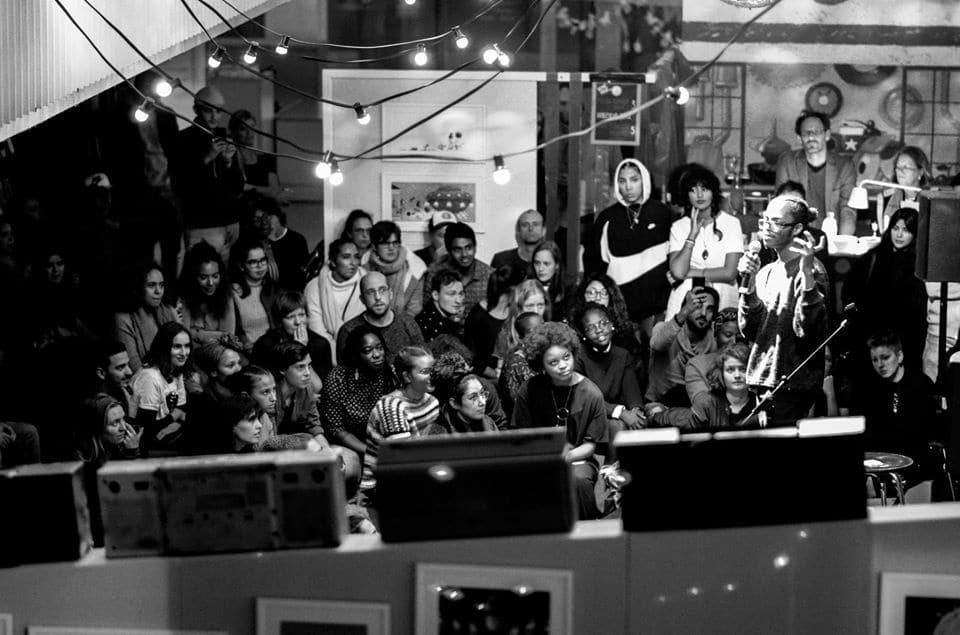
Mama’s Open Mic (MOM) was created ten years ago to give performing artists the opportunity to show their work to a wide audience in an accessible way. Some artists already have a lot of experience, others take their first steps on stage. They are poets, slam poets, word artists, singers, stand-up comedians, rappers and hip-hoppers.
The driving forces behind Mama’s Open Mic consciously focus on diversity and intersectionality. They emphasize how important it is that neither the audience nor the performers engage with racism, sexism, homophobia, transphobia or any other form of hurtful or offensive expression. The free stage of Mama’s Open Mic offers a completely safe environment for every performing artist.
What the jury says:
Mama’s Open Mic plays a pioneering role in the inclusion and transformation of the performing arts landscape. Mama’s Open Mic distinguishes itself from other similar initiatives by creating a safe space with accompanying community. Talents from various backgrounds feel safe enough to grab their chance behind the microphone, to experiment and to move the audience interactively with quality work.
Social-Cultural Work for Adults: Vzw Humain

The non-profit association HUMAIN fights for human rights, provides humanitarian assistance for people in need, aims to promote equal opportunities and the general welfare of minority groups or individuals. Vzw Humain distributes food and organises activities for and by refugees, and education for children in refugee camps and detention centres. In addition, the association wants to adjust the (negative) image of refugees in the media and society.
What the jury says:
In its fight against the dehumanisation of refugees, Humain vzw puts critical analysis, warm support and psychological assistance first. An organization like Humain vzw gives humanity and hope in our society a clear face.
BILL Award: Kato De Boeck
Kato De Boeck (b. 1994) graduated as a film director in 2018. Fascinated by honest and pure cinema, she obtained her master’s degree with her autobiographical short film Provence. The short film has won more than 20 (inter)national prizes.
What the jury says:
For the first time, the winner of the BILL Award was not only chosen by an online public vote, but also by a youth jury. That jury gave De Boeck the most points. The jury was very impressed by the highly charged scenes in her film Provence and the slow pace that at no point was boring.












